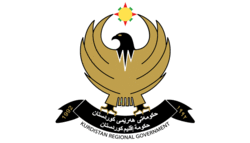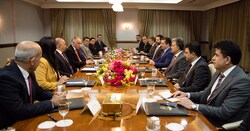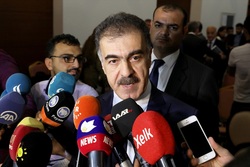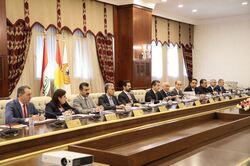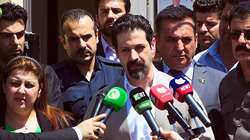5,000 citizens exploited to establish dollars smuggling shell companies in Kurdistan
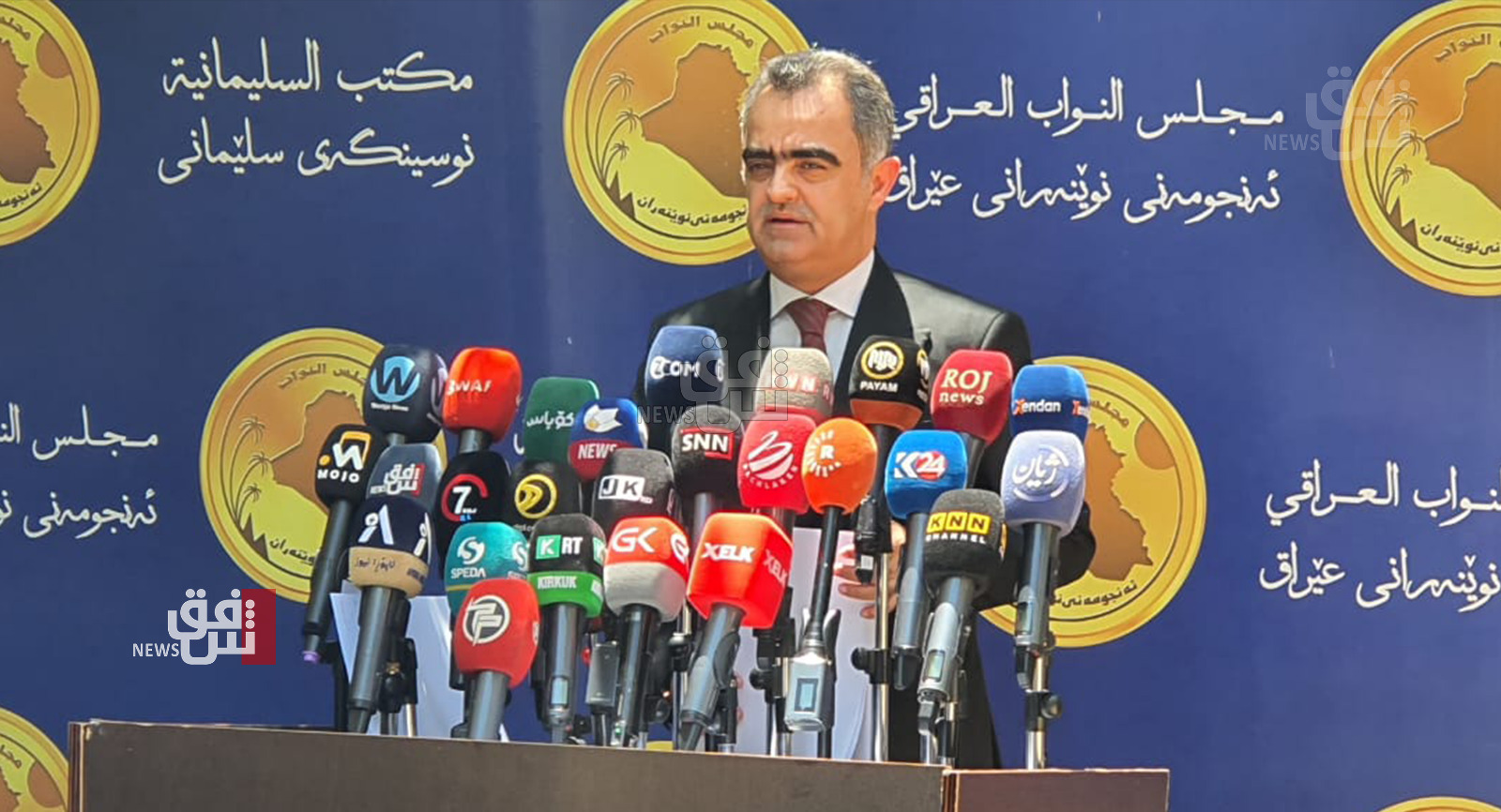
Shafaq News / Soran Omar, a Kurdish MP in the Iraqi Council of Representatives, revealed on Thursday that some Kurdish brokers exploited 5,000 citizens from the Kurdistan Region by establishing fake businesses to smuggle dollars through them, emphasizing that one of the US-sanctioned banks provided a modern car as a bribe in exchange for dealing with one of the defendants on filing corruption cases against the bank in the Integrity Commission.
Omar stated, "The file of money laundering and currency smuggling has become one of the thorny files that have clearly affected the country's economy."
He added, "During careful follow-up of one of the exchange points in the Region, it became clear that $ 165 million were transferred abroad within 29 days without the knowledge of the Central Bank of Iraq (CBI) because monitoring currency and exchange companies in Kurdistan is subject to the follow-up of the Regional government (KRG)."
"There is another technique to smuggle money, and that is by setting up enormous capital corporations with little commercial activity. For instance, some brokers moved 5,000 low-income residents of al-Sulaymaniyah to Baghdad and seized their paperwork and signatures, in exchange for $200 in order to employ attorneys to form business entities."
Omar also pointed out that "the capital of these companies amounts to more than one billion dinars, and the lawyers have sold the shares of these companies through the power of attorney they obtained by those citizens who were exploited by the Kurdish brokers. Now, these fake companies take dollars from the currency market and the CBI under the pretext of trade."
"The federal security agencies are looking for the said citizens, and the federal ministry of trade has cut off their ration on the grounds that their monthly imports are too high at two million dinars. As a result, official licenses for the tens of thousands of businesses that have been established in Kurdistan and throughout Iraq must be scrutinized."
"This file was submitted to al-Karkh/3 Investigation Court through the Iraqi Public Prosecution to clear the charges against the citizens," Omar continued, noting that "KRG began to follow up the files of commercial companies through the Ministry of Trade and Industry, which issued instructions on 23/7/2023 to the Directorate of Companies in Erbil, Duhok, and al-Sulaymaniyah."
The Kurdish MP pointed to "the presence of influential figures behind these fake companies that have harmed the country's economy."
The MP stated that he "submitted the files of Al-Sharq Al-Awsat and Al-Shamal Banks for integrity, and some employees of the former are now trying to bribe their way to withdraw the file," adding that "they have given a modern car for someone to convince me to deal with one of the defendants about Al-Sharq Al-Awsat corruption file, but I refused to do so."
Furthermore, the Iraqi dinar recorded a significant decline against the dollar in the Baghdad and Erbil stock exchanges, just a few days after the US sanctioned 14 private banks, due to violations related to their dealings with parties sanctioned by Washington, most notably Tehran, and while economists and finance experts describe the CBI’s approach as "timid", they developed solutions that must be resorted to to "curb" the price of the dollar.
Shafaq News Agency revealed the names of the said banks in Iraq, namely "Islamic Advisor for Investment and Finance, Al-Qurtas Islamic Investment, Al-Tayf Islamic Bank, Elaf Bank, Erbil Investment Bank, International Islamic Bank, Trans Iraq Bank, Mosul Bank for Development and Investment, Al-Rajeh Bank, Sumer Commercial Bank, Trust International Islamic Bank, Ur Islamic Bank, Islamic World Bank, and Zain Iraq Islamic Bank for Investment and Finance.
The US decision follows a similar decision several months ago in which several similar banks were placed on the sanctions list, namely Al-Ansari Bank, Al-Sharq Al Awsat, Al Qabidh Bank, and Asia Bank.
In response to the dollar's rise, the CBI has taken measures to curb it, allowing exchange companies classified as "class A and B" to open deposit accounts in both dinars and dollars and participate in the currency exchange.
According to the Wall Street Journal, "the move came after revelations of information indicating that the targeted banks were involved in money laundering and fraudulent transactions."
Moreover,Since January of the previous year, both the US Treasury Department and CBI have imposed strict controls on cash transactions conducted by Iraqi banks to combat money laundering and smuggling. However, smuggling operations have continued with varying methods and means of evacuating cash.
the exchange rates of the US dollar against the Iraqi dinar have seen a significant increase in both Baghdad and Erbil, reaching 155 thousand dinars per hundred dollars, despite the official exchange rate set at 1,320 dinars to the dollar in the Iraqi budget. This surge followed Washington's sanctions on 14 Iraqi banks as part of efforts to curb Iran's dollar transactions.
In response to the situation, the Finance Committee in the Iraqi Parliament held discussions with CBI's governor, Ali al-Alaq, on stabilizing currency rates. Deputy Governor of CBI, Ammar Hamad, emphasized that the primary goal of the central bank is to stabilize the dollar's exchange rate against the Iraqi dinar. He clarified that CBI has provided an electronic platform for saving dollars to facilitate the purchase of goods and services from abroad.
Hamad expressed surprise at traders and citizens resorting to the market to buy foreign currency at significantly different rates from the official price set by CBI. He emphasized that speculative operations in the market have led to the current rise in the dollar's value but assured that the rate would return to its previous level soon. Hamad noted that foreign currency is available, and the issue lies in the demand for currency, with traders preferring the market over banks or official channels, causing the rise in exchange rates.
Despite CBI's efforts to stabilize exchange rates through electronic platforms and the international financial transfer system "SWIFT," the dollar exchange rates have not yet stabilized in Iraq's parallel markets, despite the government's attempts to control the situation.

